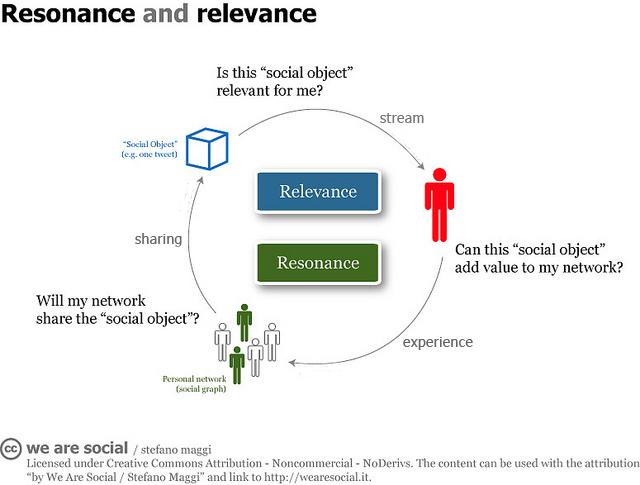Leaving a lasting impact on the world is a common desire for many people. This impact can be achieved through actions, words, and even final wishes. However, what happens when those wishes exclude certain individuals close to us? Can a will be contested if you are not named in it? This question raises important considerations regarding the intersection of legality and morality in the context of inheritance and our connections to others in life and death.
Grounds for Contesting a Will Without Being a Beneficiary
If you are not a beneficiary in a will but believe you have a valid legal reason to contest it, it’s essential to understand the common grounds for challenging a will as a non-beneficiary:
– Lack of testamentary capacity: If the person creating the will was not of sound mind, the will may be considered invalid.
– Undue influence: If someone pressured or coerced the testator to include or exclude certain beneficiaries, the will can be contested.
– Fraud or forgery: If there is evidence of manipulation or falsification in the will, it can be legally challenged.
Legal Grounds for Contesting a Will
Contesting a will requires meeting specific legal grounds for a successful case. Despite not being named in the will, it is possible to contest it if certain criteria are met. For instance, if you suspect that the will was not executed properly, such as not being signed in accordance with state laws or if the person making the will did not have the mental capacity to understand the document, you may have a strong case for contesting the will.
Another legal ground for contesting a will is if you believe there was undue influence involved in its creation. This could include situations where someone exerted pressure or coercion on the person making the will. If you suspect foul play, you may have the legal grounds to contest the will, even if you are not named as a beneficiary.
Exploring Alternatives to Contesting a Will
If you are considering contesting a will in which you are not included as a beneficiary, it’s worthwhile to explore alternatives before engaging in a legal battle. These alternatives include seeking mediation with the executors and beneficiaries, considering whether there may have been a mistake in the will that can be rectified, or exploring the option of filing a family provision claim if you believe you were inadequately provided for in the will. Exploring these alternatives may lead to a solution that satisfies your concerns without the need for a legal battle.
Seeking Legal Advice for Contesting a Will Without Inheritance
Contesting a will without inheritance can be a complex and emotionally charged process. It requires strong evidence to support your claim, the establishment of valid legal grounds for contesting the will, and professional representation from an experienced estate litigation attorney. By consulting with a knowledgeable attorney, you can explore your options and determine the most effective strategy for contesting the will in question.
The Way Forward
Contesting a will in which you are not named as a beneficiary can be a difficult and complex process. It’s important to consult with a legal professional to understand your rights and options. While challenging a will may be emotionally challenging, approaching the situation with a level head and seeking guidance from experts in the field is crucial. The legal system aims to ensure fairness and justice for all parties involved. Thank you for reading.
 Challenging a Will: What to Do If You’re Left Out
Challenging a Will: What to Do If You’re Left Out
It can be a devastating discovery to find out that you have been left out of a loved one’s will. Whether it was an intentional decision or simply an oversight, the emotional and financial impact can be overwhelming. In such cases, you may be wondering what your options are and how you can contest the will. This article will provide valuable information on what to do if you find yourself in this challenging situation.
Understanding the Grounds for Challenging a Will
Before taking any action, it’s important to understand the legal grounds for challenging a will. In general, there are several common reasons for contesting a will, including:
– Lack of testamentary capacity: This means that the person who created the will was not of sound mind at the time of its creation. This could be due to mental illness, dementia, or other factors that affected their ability to make rational decisions.
– Undue influence: This occurs when someone exerts pressure or influence on the person creating the will to include or exclude certain beneficiaries.
– Fraud or forgery: If there is evidence that the will was forged or created under fraudulent circumstances, it can be challenged in court.
– Improper execution: Wills must meet specific legal requirements in terms of signing and witnessing. If these requirements were not met, the will can be deemed invalid.
If you believe that any of these factors may apply to the situation, it may be worth seeking legal advice to explore your options for contesting the will.
Seeking Legal Advice
Challenging a will can be a complex and emotionally charged process, so it’s important to seek the guidance of an experienced lawyer who specializes in estate law. They can help you understand your legal rights and advise you on the best course of action. Here are some key steps to consider when seeking legal advice:
– Research and find a reputable lawyer who has experience in contested wills and estate litigation.
– Schedule a consultation to discuss your situation and gather information on the options available to you.
– Work closely with your lawyer to gather evidence and build a strong case if you decide to proceed with contesting the will.
The Benefits and Practical Tips of Challenging a Will
Challenging a will is not a decision to be taken lightly, but in cases where you genuinely believe that you have been unfairly excluded, it can be a necessary step towards achieving justice. Here are some benefits and practical tips to consider:
– Ensure that you gather all relevant evidence and documentation to support your case. This could include medical records, witness statements, and any written communication related to the will.
– Emphasize the importance of seeking legal advice and representation, as contesting a will can be a complex and challenging process.
– Consider mediation as an alternative to going to court. This can provide a more cost-effective and less emotionally draining resolution to the dispute.
Case Studies and First-Hand Experiences
To provide a real-world perspective on this topic, let’s consider a case study where an individual successfully contested a will after being excluded. This can help readers understand the process and potential outcomes of challenging a will.
Case Study:
Maria, a devoted niece, was devastated to learn that her wealthy aunt had left her out of her will in favor of a distant relative whom she had never had close ties with. Suspecting foul play, Maria sought legal advice and was able to successfully challenge the will based on evidence of undue influence exerted by the distant relative. As a result, the court ruled in Maria’s favor and awarded her a rightful share of the estate.
This case study highlights the importance of seeking legal counsel and standing up for what you believe is fair and just. It also serves as a reminder that the legal system can provide recourse for those who have been wronged in the distribution of a loved one’s estate.
In Conclusion
Being left out of a will can be a distressing and confusing experience, but it’s important to understand that you do have options for challenging the will if you believe it to be unfair or invalid. Seeking legal advice, gathering evidence, and considering alternative dispute resolution methods are all important steps to take in this situation. By understanding the legal grounds for contesting a will and seeking the guidance of a knowledgeable lawyer, you can pursue a fair resolution that honors the wishes of your loved one.


